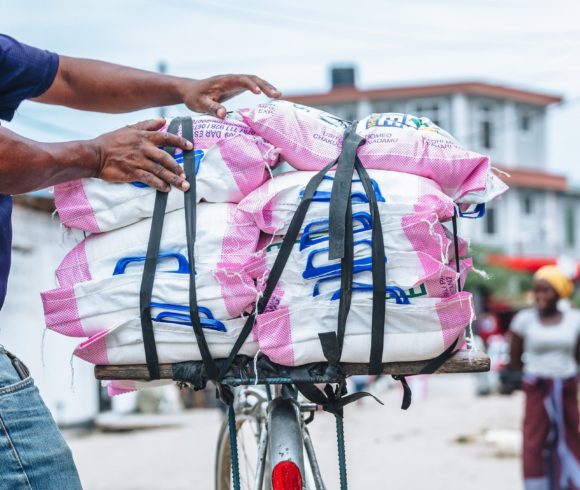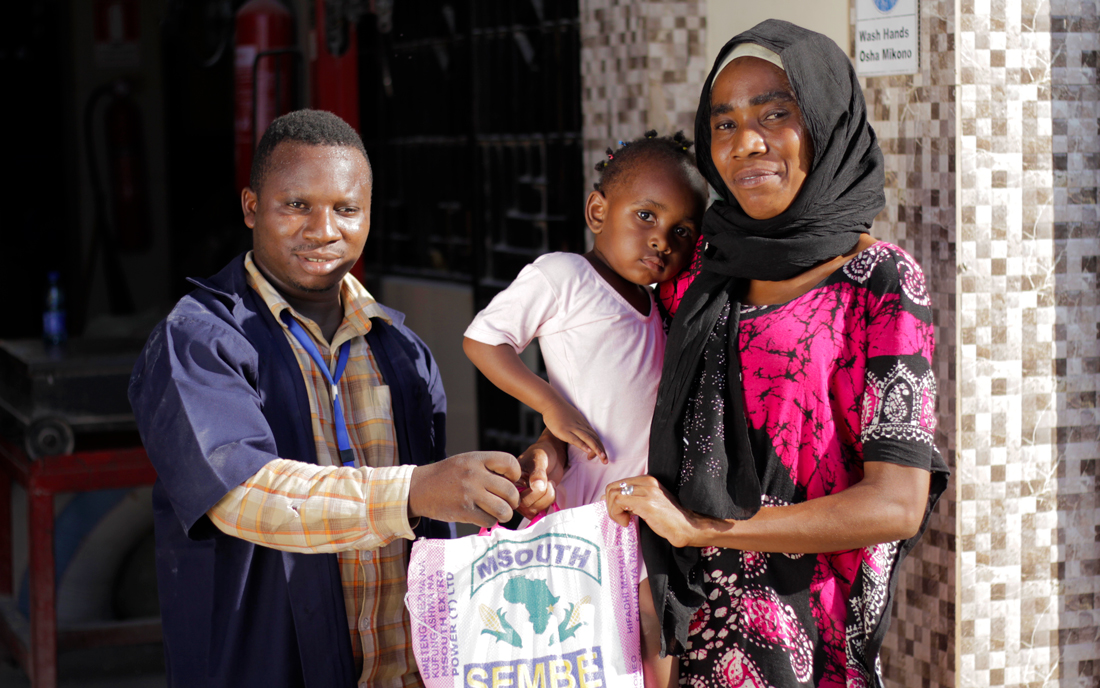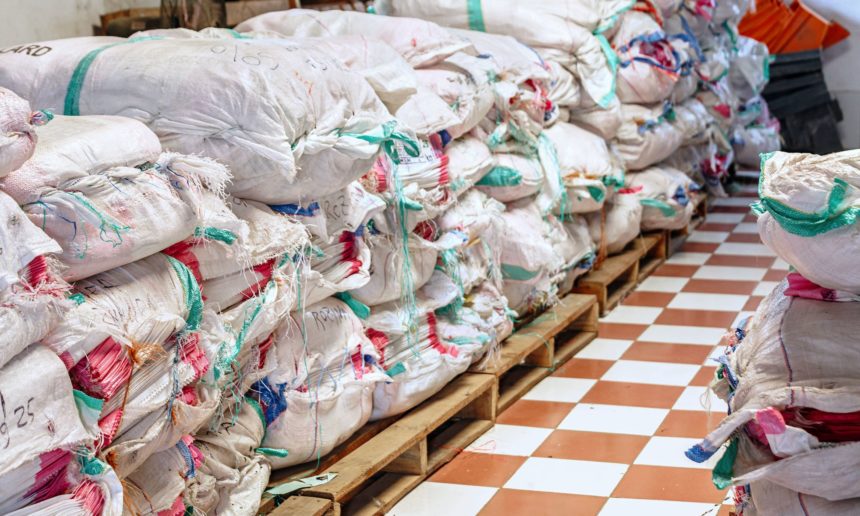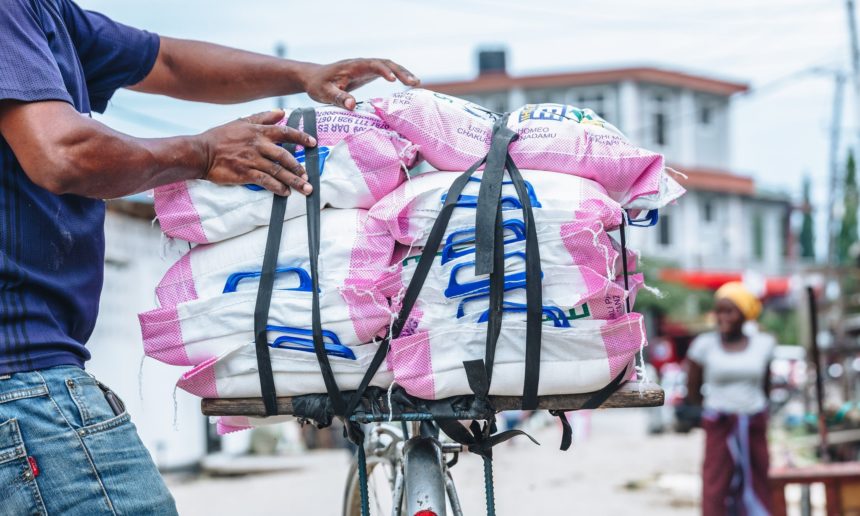Sanku’s powerful approach to end malnutrition in Africa
Sanku is one of the most extraordinary social businesses in Africa. The company has found a very effective way to enrich core staple foods like maize flour with livesaving vitamins and minerals. What differentiates Sanku from others who work in that field, is that the company reaches its goal
- at no extra cost for the consumer
- and without limiting its reach to the large agglomerations where food fortification already takes place to a growing extent
Sanku evolved from an international non-profit initiative called “Project Healthy Children”. Indeed, the primary beneficiaries from food fortification are children. In Tanzania, where Sanku is based, cornmeal mush, or Ugali, is what people eat most – children as well as adults. Many eat very little else. The problem: Corn mush is filling. But it’s not nutritious.
Studies show that the lack of vital “micro-nutrients” in the first five years of life leads to irreversible developmental disorders. As of today, 200 million children worldwide are affectied. Sanku’s mission is to end malnutrition in Africa. Its target: to reach 100 million people by 2025. This is 50 times more than the company reaches today. Impossible? No. Sanku’s approach allows for rapid scaling-up.
The business model is very straightforward. Sanku equips local grain mills with an easy to install dosifier device, which empowers the local miller to add the right dose of micronutrient to the flour. With the help of a simple trick, Sanku is in a position to provide the nutrients to the mills for free. The key are the flour bags. Sanku purchases large quantities of customized flour bags. It sells them to the millers at the same price they paid on the local market before. By ordering bulk quantities, Sanku makes a margin which it uses to cross-subsidies the micronutrients, which it delvers alongside the flour bags to the local mom-and-pop village mills who cover about 87% of the market. Subsequently, neither the miller nor the end consumer pays any extra costs. The price for fortified flour is the same as for the non-fortified flour. Moreover, people trust the pink stripe colored flour bags. The look shiny and clean and contain the logo of Tanzania’s government food agency.

A vendor delivering fortified flour
to shops in Dar es Salaam.
Sanku’s approach solves the problem that very few people in rural Africa can afford to pay an extra for food fortication. But it is not only a question of money. People know too little about the harm caused by the lack of essential vitamins and minerals in the daily diet. It simply is not visible at first sight.
However, even though Sanku identified a powerful way to tackle the challenge of malnutrition, its business model is not entirely self-sustaining. This is the main reason why Sanku registered as a non-profit organization:
- The cross-subsidy of the vitamins and minerals from selling their own flour bags doest not cover the full 100%. For every person reached, a total of $0,50 needs to be covered, per year. This equals about one seventh cent per day per person. Less than any user of our search engine generates with every single click.
- The dosing machines remain the property of Sanku and are remote-controlled through a scheme, which Sanku set-up with support of Vodafone. This allows to ensure the quality and to better measure the impact achieved. The total one-off cost to equip a new mill with a dosifier are about 2,500 USD. As of today, each village mill reaches an average of 5,000 people. The investment costs therefore amount to 50 cents per person reached. This corresponds approximately to the amount that a user of a search engine like Gexsi generates per month for a good cause.
Sanku combines a philanthropic program with an impact business model and achieves an enormous leverage per donation. No wonder that the international “Effective Altruism” network has become aware of Sanku and is engaged in a close dialogue on how to further expand the scheme.
The opportunities to grow is immense. Beyond the obvious to expand the number of countries served, Sanku already partnered with the World Food Program to assist in fortifying food in several refugee camps and connects with development agencies who connect local millers with the existing school meal programs, to reach its core target group even better.
Watch this powerful video to find out more about Sanku:
How Sanku – Project Healthy Children contributes to the 17 Global Goals
Zero Hunger
Stop malnutrition through mainstreaming fortified flour across Africa
Good health and well-being
Prevention of intellectual disabilities among children, preventable blindness and maternal death during childbirth due to lack of vital micro-nutrients
Responsible consumption and production
Mainstreaming maize flour fortification across thousands of small-scale mills across Africa, at no extra cost
Project Assessment
You can access the full project assessment here:
Images
Your Feedback
How do you like the project? Give us feedback!




